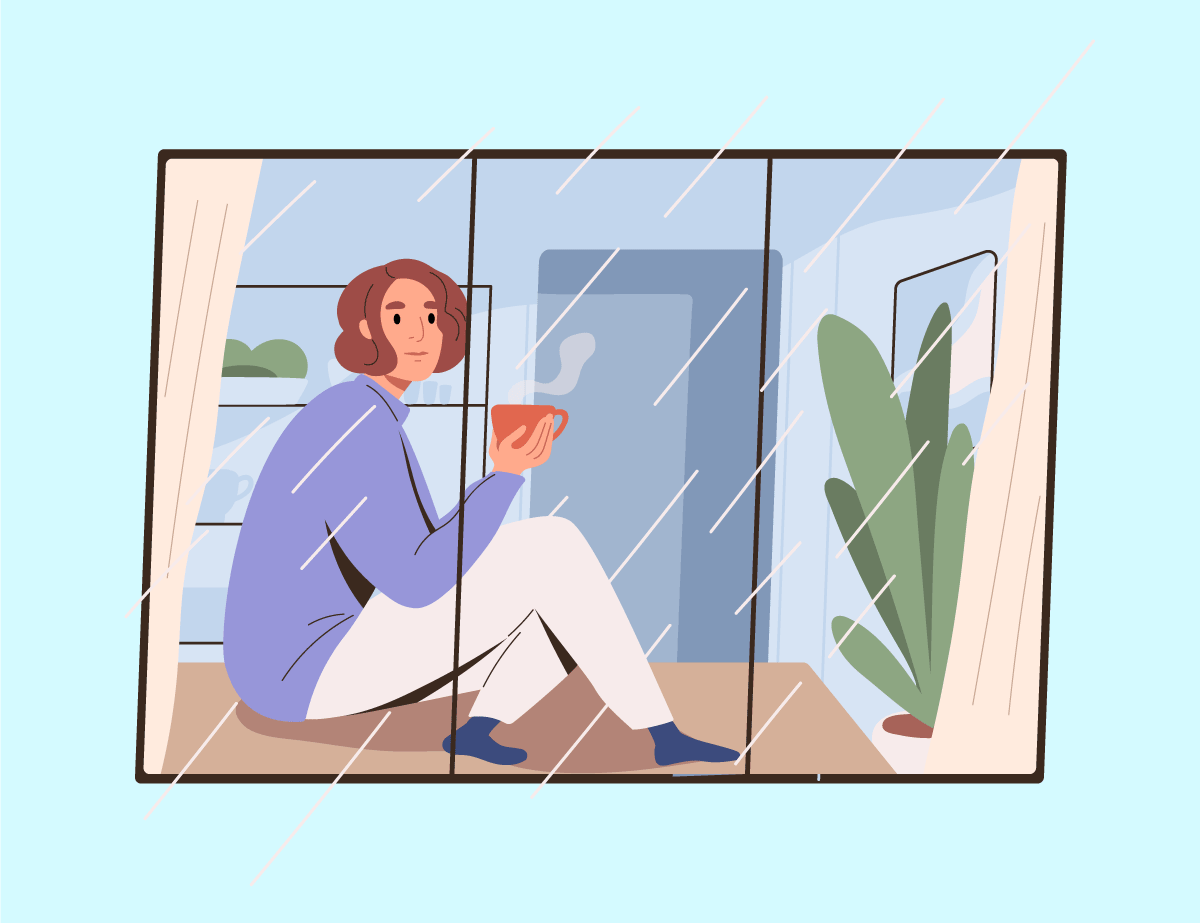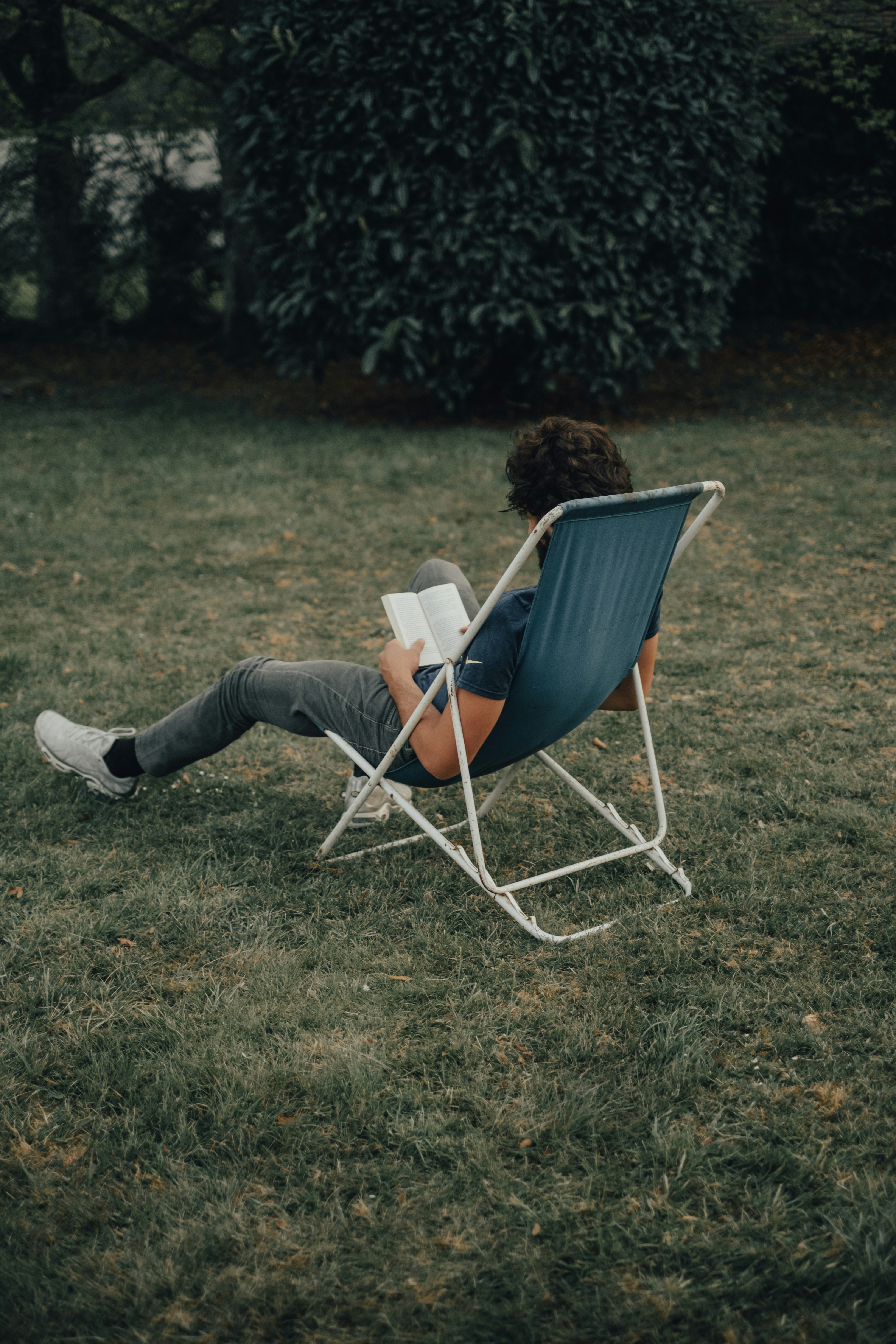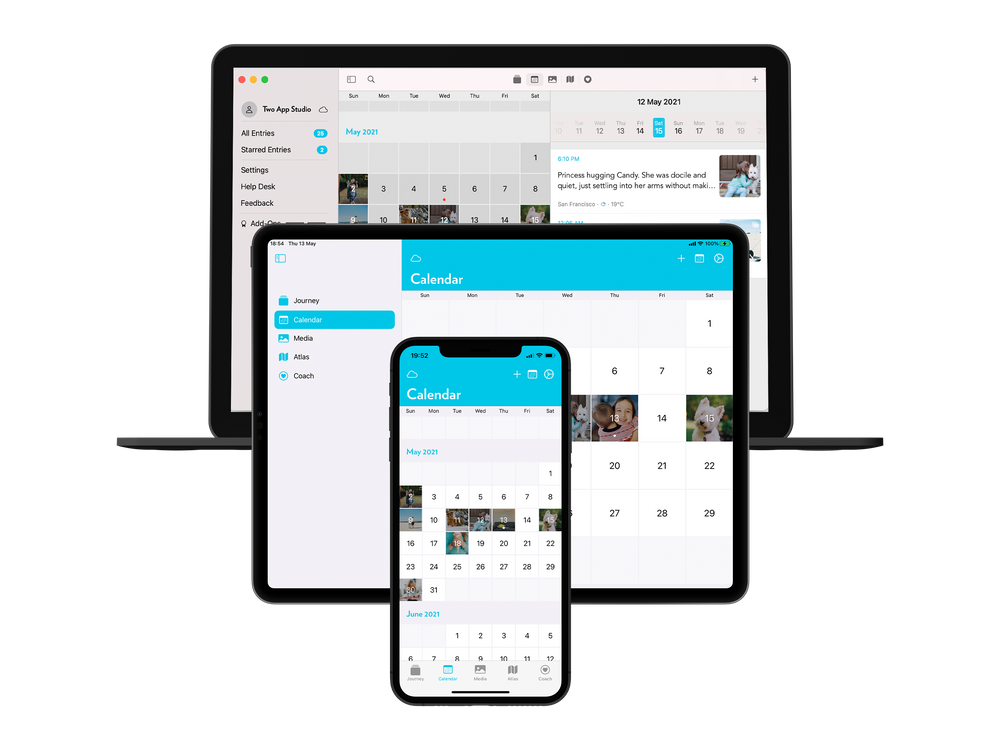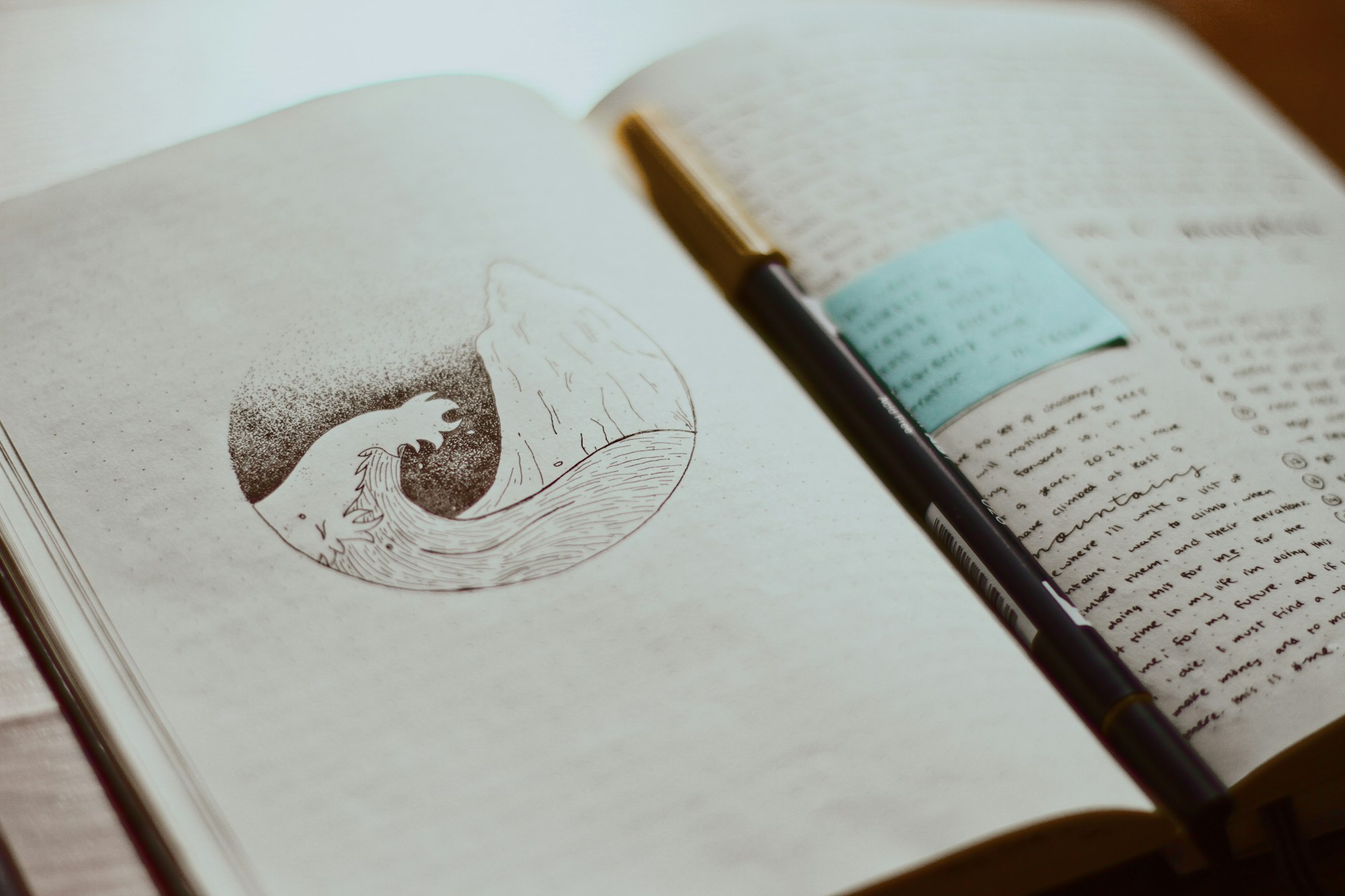Falling back in Love with Spending Time Alone - Why Alone Time is Important
Quality alone time will not make you feel lonely, but more in tune with yourself. Having enough alone time is crucial to our well-being. Here's how you can about getting quality "me" time today.

Humans are highly social beings. Our social connections and relationships are pivotal to our emotional, mental and physical well-being. Quality relationships have been proven to alleviate anxiety, increase self-esteem, and create opportunity for us to practice empathy. On the physical front, reliable and healthy relationships can even improve your immunity, prevent and help you recover from sickness and disease, and improve the overall quality of your life.
As much as social relationships are important, being able to set time aside to spend time with yourself is also pivotal in your mental and emotional health. Being around people can create reasonable stress. We find ourselves altering and adjusting our behavior in accordance to the people around us as well. It is normal for us to think about what other people think, how other people feel, how people might perceive us, and act accordingly.
Being able to spend quality time with yourself helps you break away from such social pressures, and truly be in touch and in tune with your own feelings, thoughts, wants, and needs.
Can spending time alone truly better the quality of your life and well-being? Read on to find out how, and more about how you can fall in love with spending time with yourself.

Photo by Andriyko Podilnyk on Unsplash
What is spending time alone?
What exactly does "alone" mean?
The terms "alone" and "lonely" often get convoluted. Even though they come from the same root word "lone", being alone and feeling lonely are worlds apart. Alone, on a superficial level, would mean being physically by yourself or a apart from other people. It also means that you are not being connected, tethered, communicative (in person, on social media platforms, through devices) with anyone else in that time. The real, valuable benefits of being alone come from not only being physically apart, but when you are truly disconnected on all fronts; physical, mental, technological. In this "alone" time, you have the opportunity to truly tune into and pay attention to the things that are important to you; your needs, wants, expectations, and personal goals.
Feeling lonely, on the other hand, has negative connotations and negative sentiments attached to it. Being “alone” can be understood as more of a physical state, while being “lonely” refers to an emotional state in which you are feeling the negative affects of being detached and disconnected socially. While being alone can actually lead to some forms of self-empowerment from being well-connected and in tune with yourself, loneliness can lead to feelings of emptiness and being unwanted or unappreciated. It can cause you to stop engaging in meaningful acts of self-care and stop us from having the motivation to reach out and make connections with the people around us.

Photo by Thomas de LUZE on Unsplash
Spending time alone can be a grounding choice when the time is used to gain a better understanding of yourself as an individual and about what you want and need to lead a quality life, and having the space and time to do those things. It is important to distinguish the need to spend time alone, and how to manage your emotions when you start feeling lonely. The former can be truly productive, while the latter can be destructive emotionally, mentally, and physically.
The Benefits of Spending Time with yourself
1. Gain a better understanding of yourself
The very basis of spending time alone, in the absence of other people and the social pressures that may come along with it, is that it can help you develop a better, deeper understanding of your own wants and needs. You get to pay attention to who you are as an individual. The more you are able to understand yourself, the more likely it is that you understand why you want what you want, and need what you need, and can then go about taking the actionable steps towards materializing those things. You can, in this time, do the things you love and learn about things that truly interest you. Giving yourself alone time means that you get to explore the things you want to do without the pressures and judgments that others may impose.
2. Personal growth and development
Spending time on your own is imperative to growth and personal development. Alone time can rid you of the very human tendency of worrying about the interests, needs, judgement, and opinions of other people, and allows you to focus on yourself. Being in a space where you have the opportunity to listen to your own thoughts, feelings, expectations, wants and needs allows you to pay attention to and invest your time and energy in the things that mean the most to you and you feel will make you better as an individual.
It can also allow you to five deeper into areas that you feel you have been falling short. Be it with regards to work, school, at home, or in your own personal endeavors, alone time provides a conducive space to practice mindfulness and reflection.

Photo by Harris Vo on Unsplash
3. Recalibration
Alone time gives you the chance to do active reflection, and also "switch off" if need be. Being around people sometimes requires you to be conscientious of the way you present yourself, how you speak, how you react, be in constant conversation, and generally "switched on". Spending time alone allows you to pause, slow down, recharge, and reboot. Coming back to social settings after spending time alone also makes socializing more enjoyable after having had time to rest.
4. Eliminate distractions
Being alone can help you, simply, get more done. This time helps you rid yourself of possible distractions and social obligations. Being able to check-off important, personal responsibilities on your to-do list adds to your sense of self and personal accomplishment.
5 Ways You Can Spend Quality Time Alone
1. Take yourself out on a date or a day out
What better way to spend time with yourself than to take yourself out to your favorite restaurant for a meal, or a day full of activities that you want to do?
Being able to plan a day or activity that you truly want to spend time on gives you the chance to prioritize your own wants and needs. You need not have to adjust or compromise for another person on a day like this. While planning a day out with friends and family can be fun as well, having only to consider what you want to do and how you want to go about doing them is bliss.
If you have yet to find a way to list down the things that you would like to spend more time on, or you have not had the opportunity to note of the hobbies and interests that bring you joy and satisfaction, consider using Journey.

If you're looking to find productive and meaningful ways to spend time alone, list down and even color-code the things you wish to spend time on and work your way through them from them during your alone time.
2. Practice mindfulness and gratitude
Meditation is often a solitary pursuit. Spending quality time alone by meditating and practicing gratitude can have lasting, positive effects on the quality of your life and how you view yourself. Apart from the more obvious benefits of helping you gain composure and sharpen your focus, it gives you the perfect opportunity to eliminate all forms of noise and distraction and prioritize your peace.
Without the clutter of conversation or the pressure of needing to appease the people around you, finding time in your day to quieten your mind and focus on deep-breathing exercises can do wonders for your emotional and mental stamina and health.

Photo by Quinton Coetzee on Unsplash
3. Journal

Journaling during your alone time might be one of the best ways to get you to pause, take a step back, and reflect on yourself. This can be as simple as spending 10 minutes on a daily reflection at night before bed. Journaling helps you build the habit of searching within and conversing with your own self. This is the best way to track your progress, check-in on your milestones, and recalibrate about places you feel you are falling short.
4. Try something creative!
People who have grown to like spending time in solitude have been observed to be more creative. This creative inclination often comes from having the space to listen to your own voice, preferences, and then expressing those through whatever creative mode you choose to explore. Being able to listen to your own voice also allows your imagination to wander without limit.
This could be the best time to start painting, picking up that instrument you have always been eager to learn, or having a go at writing poems!

Photo by dusan jovic on Unsplash
5. Set, and reflect on your goals
Spending time with yourself to set, plot your journey towards, and reflect on how far you've come creates self-purpose and helps you redirect energy to where you truly want it in your life.. The act of identifying values and setting goals is a self-reflective process in itself, and what better time to do this in the organic and productive manner than when you are alone?

Photo by Noémi Macavei-Katócz on Unsplash
Use your alone time to identify your current position in your life. Take time to acknowledge and pat yourself on the back for all that you have achieved thus far, and use it to motivate you to push further. Plot actionable steps towards the next milestone!
Both feeling lonely and the lack of quality alone time can have adverse effects on a person. It is vital to strike a good balance between investing ourselves in our social relationships, and in our sole being. Take some time off to eliminate noise, read your favorite books, reflect on how far you've come, plot your steps moving forward, and maybe indulge in creative activities.


